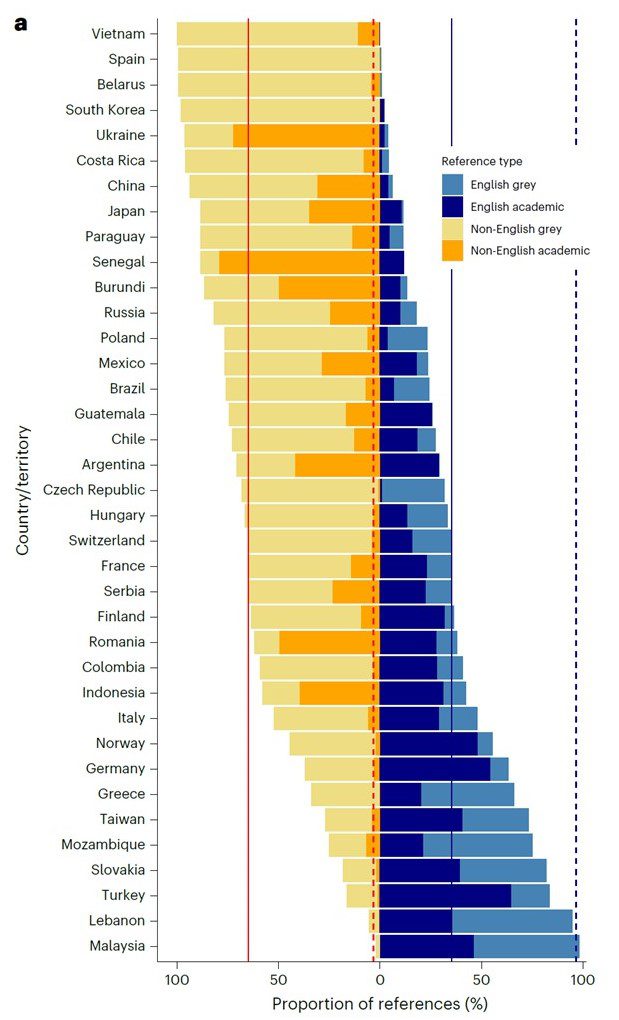The role of non-English-language science in informing national biodiversity assessments
Amano, T., Berdejo-Espinola, V., Akasaka, M., de Andrade Junior, M.A.U., Blaise, N., Checco, J., et al. (2023) Nature Sustainability 6: 845-854.
In this paper we surveyed 37 countries where English is not an official language, and found that 65% of the references cited in their national biodiversity reports were in non-English languages. But non-English-language literature represents just 3.4% of the references cited in the IPBES reports.
This means that international assessments like those by the IPBES may be overlooking important, locally and regionally relevant scientific information on biodiversity conservation, as we also uncovered in this paper.
A quarter of report authors also said they struggled with understanding English-language literature, which shows that English-language barriers seem to impede the uptake of scientific evidence in decision making in those countries where English is not widely spoken. Luckily we have also found a solution to this; half of the report authors said having non-English titles/abstracts can help them search and understand English papers.
Our findings point to the importance of overcoming language barriers for making the best available evidence accessible to anyone regardless of the publication language, and achieving Target 21 of the Kunming-Montreal Global Biodiversity Framework by the Convention on Biological Diversity.
This was another global collaboration with 37 coauthors around the world. We would like to thank all of the collaborators and those who participated in our survey.
Press releases are issued from:

